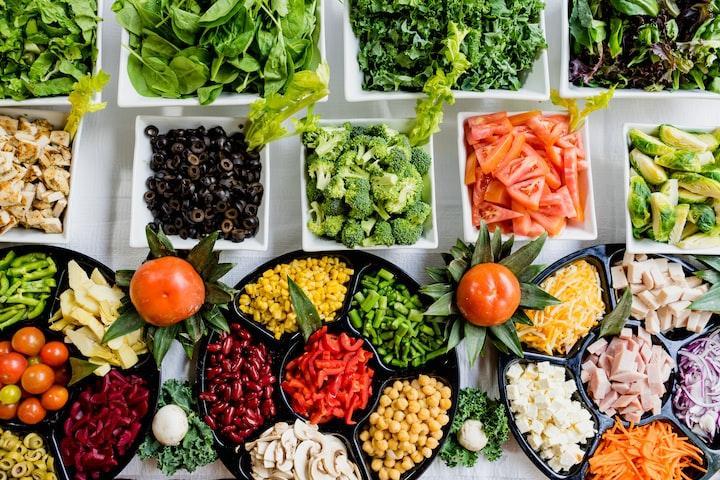Artificial sweeteners. An array of artificial sweeteners pass through the body undigested, and because of this, they can negatively affect the microflora in your gut, Jones says
Jones points to research that suggests even small amounts of aspartame can cause changes in gut microflora. One study published in the journal Food and Chemical Toxicology found that aspartame consumption increased the growth of Enterobacteriaceae, a group of bacteria that includes E. coli, while another study found that it inhibited the growth of Bifidobacteria, a type of “good” bacteria.
While more research needs to be done on the effects of artificial sweeteners on gut health, Jones says it’s best to err on the side of caution and avoid them if possible.
Alcoholic beverages
Alcohol is a toxin that can damage your gut. When you drink alcohol, it passes through your stomach and intestines and is absorbed into your bloodstream. Alcohol can damage the lining of your stomach and intestines, which can lead to inflammation and bleeding. It can also increase the production of stomach acid, which can further damage the lining of your gut. In addition, alcohol can increase the risk of developing gastroesophageal reflux disease (GERD), a condition in which stomach acid flows back up into the esophagus.
Chronic alcohol use can also lead to liver damage, which can cause inflammation and scarring of the liver (cirrhosis). This can lead to a build-up of toxins in the blood (including ammonia), which can then damage other organs, such as the brain.
In addition to its direct effects on the gut, alcohol consumption has also been linked to an increased risk of developing certain types of cancer, including cancer of the mouth, throat, esophagus, liver, and breast.
Fried foods
Fried foods are typically cooked at very high temperatures, which can cause the formation of harmful compounds known as advanced glycation end products (AGEs). These AGEs have been linked to inflammation and a host of other health problems.
In addition, fried foods are often coated in breading or batter, which can contain gluten. This protein is difficult to digest and can cause inflammation in people with celiac disease or non-celiac gluten sensitivity.
If you frequently eat fried foods, it’s important to take steps to protect your gut health. First, make sure to include plenty of other healthy food choices in your diet so that you’re not overloading your system with unhealthy fats and compounds. Second, consider supplementing with a probiotic to help replenish the good bacteria in your gut that may be damaged by fried foods.
Red meat
Red meat has been linked to various health problems, including an increased risk of heart disease, cancer, and other chronic conditions. The exact mechanism by which red meat may cause these problems is not fully understood, but it is thought to be related to the high levels of saturated fat and cholesterol found in red meat. Additionally, the processing of red meat (such as through curing or smoking) can create harmful compounds that can damage the gut lining. For these reasons, it is recommended that people consume only small amounts of red meat or avoid it altogether.
Processed foods
Refined Grains
Refined grains are those that have had the bran and germ removed, leaving only the starchy endosperm. This process makes them quicker to cook and increases their shelf life, but it also strips away many valuable nutrients like fiber, vitamins and minerals. What’s more, refined grains are often enriched with synthetic versions of these lost nutrients, which may not be as easily absorbed by the body as the naturally-occurring forms. Consuming too many refined grains can lead to digestive problems like constipation and bloating, as well as other health issues like obesity and type 2 diabetes.
Added Sugar
Sugar is added to all sorts of processed foods in order to make them taste sweeter or improve their texture. Unfortunately, this extra sugar comes with a host of negative effects on our health including weight gain, cavities, insulin resistance and inflammation. Excess sugar intake has also been linked to an increased risk of developing certain types of cancer. When about gut health specifically, too much sugar can feed bad bacteria and yeast in the intestines, leading to digestive problems such as SIBO (small intestinal bacterial overgrowth) or candida overgrowth. It can also contribute to leaky gut syndrome by damaging the lining of the intestines. To protect your gut (and your overall health), it’s best to limit your intake of processed foods that contain added sugars. Natural sources of sugar like fruits, honey and maple syrup are a much better choice when you need a sweet fix.
Sugary soft drinks
Sugar is a major source of fuel for the yeast and bacteria that live in your gut. When you consume sugary drinks, these microorganisms feast on the sugar and produce acids that can damage the delicate lining of your intestines. This can lead to inflammation, leaky gut syndrome, and other digestive problems.
In addition to the sugar content, many soft drinks are also loaded with artificial sweeteners like aspartame or sucralose. These chemicals can disrupt the delicate balance of microbes in your gut and contribute to inflammation.
So if you’re looking to protect your gut health, it’s best to avoid sugary soft drinks altogether. Stick to water or unsweetened tea or coffee instead.
